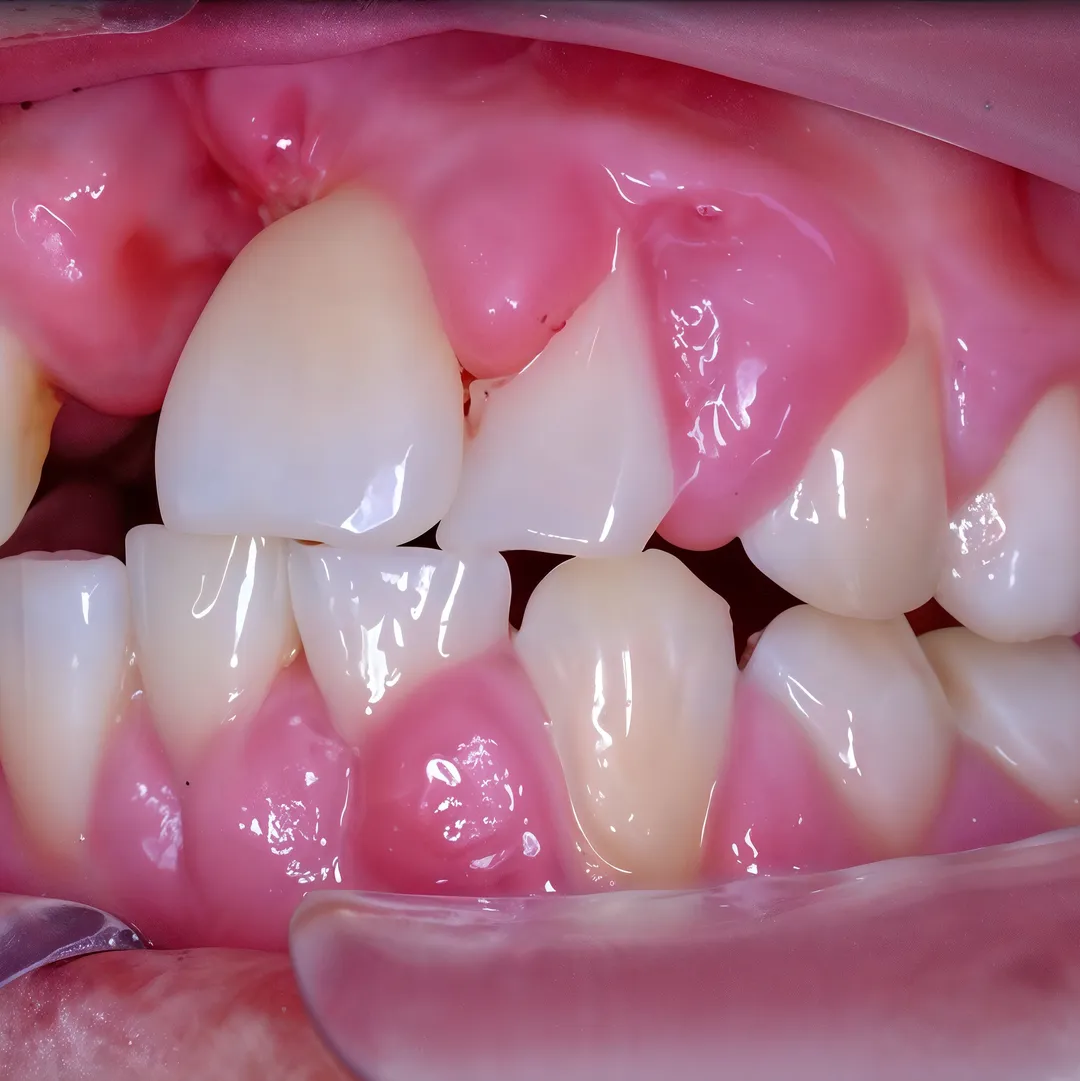Epidemiology:
- Very common worldwide; affects majority of adults at some point.
- Higher prevalence in individuals with poor oral hygiene, smokers, diabetics, and immunocompromised patients.
Expected Prognosis:
- Good if treated early with proper oral hygiene and professional cleaning.
- Reversible in early stages; untreated cases may progress to periodontitis.
Natural Progression:
- Plaque buildup → gingival irritation → redness, swelling, bleeding on brushing/flossing.
- Without treatment, inflammation extends deeper, causing bone loss and periodontal disease.
Pathophysiology:
- Dental plaque bacteria produce toxins → immune-inflammatory response in gingival tissue.
- Vasodilation, increased permeability, and infiltration of inflammatory cells cause swelling and bleeding.
Possible Complications:
- Periodontitis with bone loss.
- Tooth mobility and eventual tooth loss.
- Increased risk for systemic conditions (e.g., cardiovascular disease, adverse pregnancy outcomes).
Frequently Asked Questions
What causes gum inflammation?
Gum inflammation (gingivitis) is mainly caused by plaque buildup, but it can also result from hormonal changes, smoking, or medical conditions like diabetes.
How do I know if my gums are inflamed?
Signs include redness, swelling, tenderness, and bleeding while brushing or flossing.
Can gum inflammation go away on its own?
Mild cases can improve with good oral hygiene, but untreated gingivitis can progress to gum disease.
How is gum inflammation treated?
Brushing, flossing, and professional cleanings help. Severe cases may need deep cleaning (scaling and root planing).
Can gum inflammation lead to tooth loss?
Yes, if left untreated, it can develop into periodontitis, which can cause bone loss and loose teeth.
Gum Inflammation can be an adverse outcome of

Orthodontic Retainers
Orthodontic retainers are custom-made dental devices designed to maintain the position of teeth after orthodontic treatments. They play a crucial role in ensuring that the results achieved through braces or aligners remain stable over time.

Straightening Teeth with Invisalign
Invisalign is a clear aligner system designed to straighten teeth discreetly and comfortably.

Straightening Teeth with Conventional Braces
Conventional braces remain a reliable and effective method for treating a variety of orthodontic problems, including severe malocclusions.

Periodontal Therapy
Periodontal therapy encompasses non-surgical and surgical procedures to treat gum disease, improve oral health, and prevent tooth loss.

Scaling/Polishing- Dental cleaning
An essential dental procedure designed to maintain optimal oral health.

